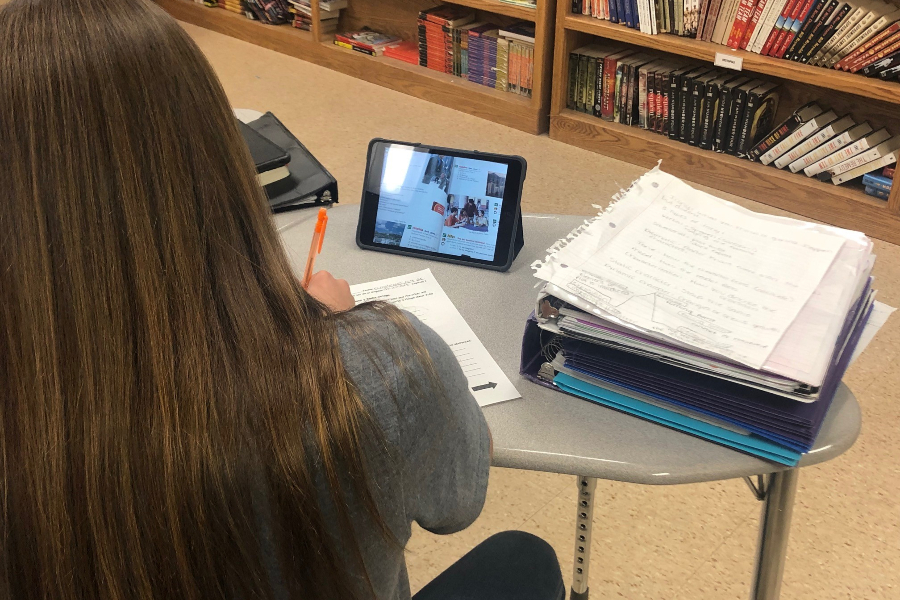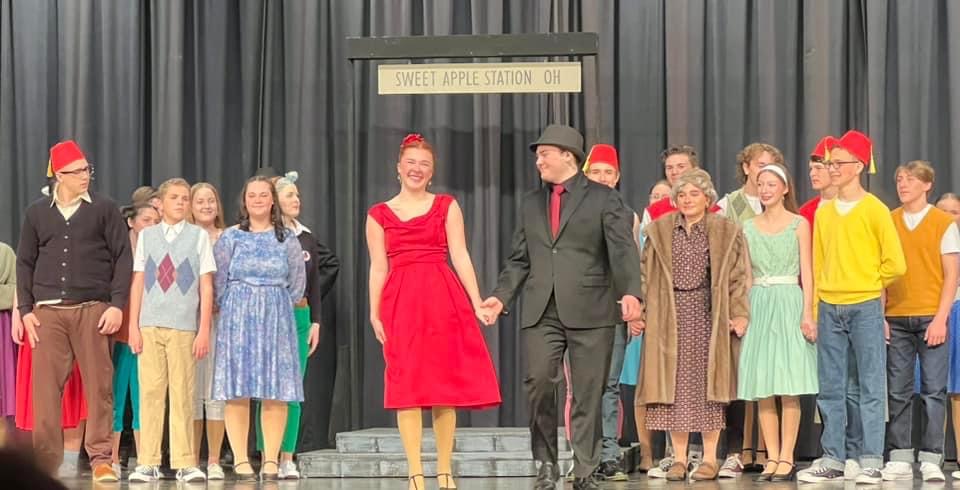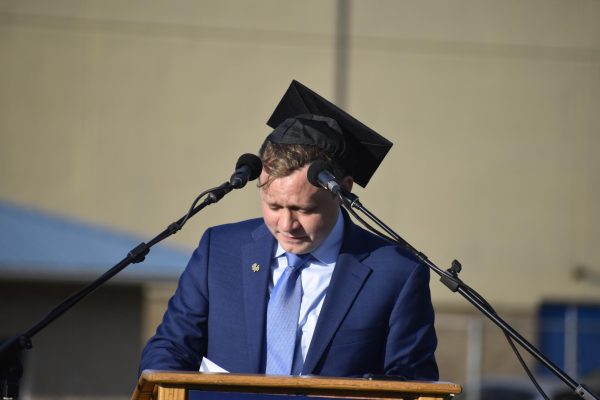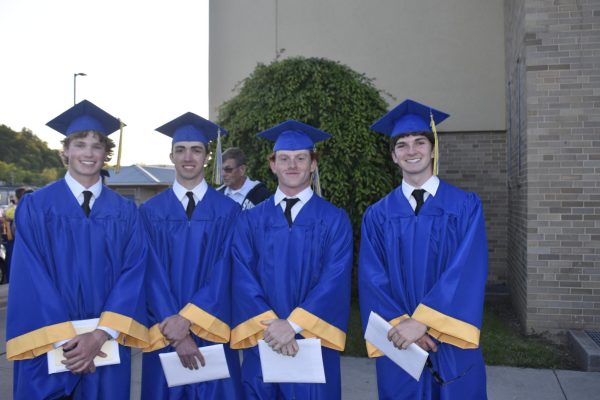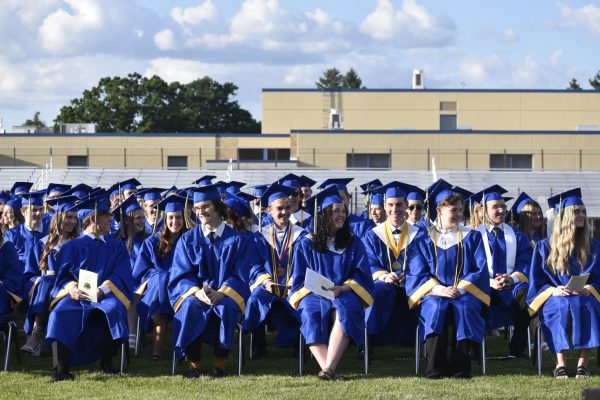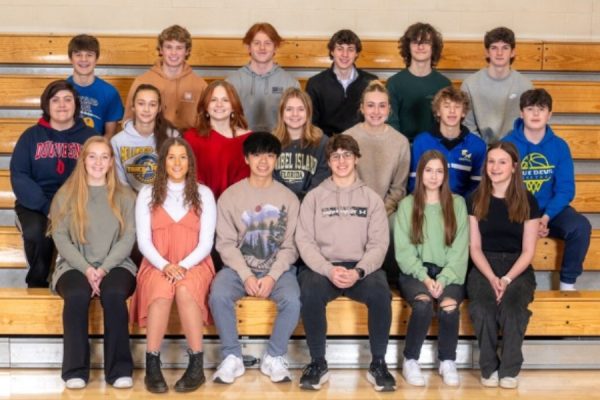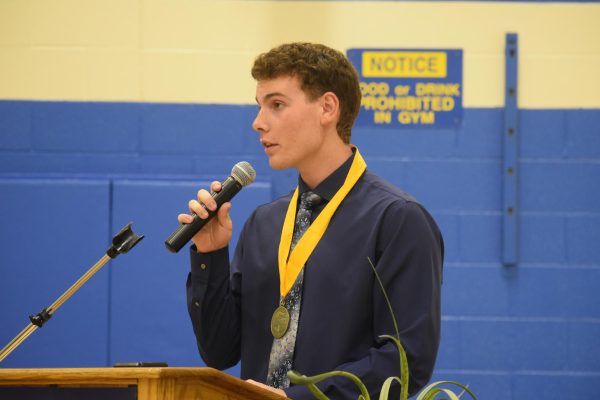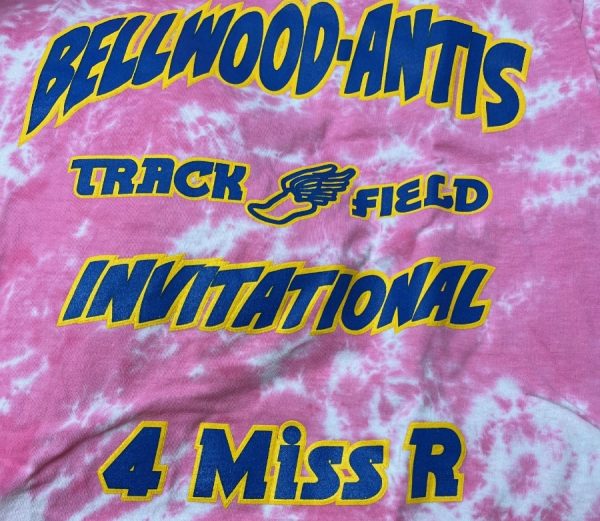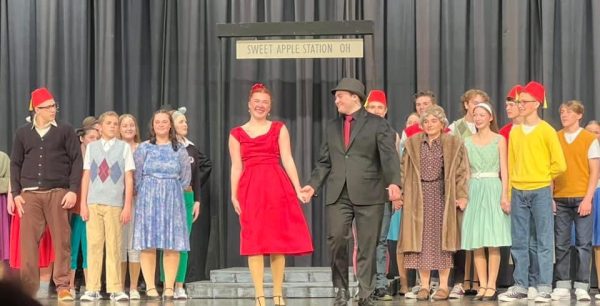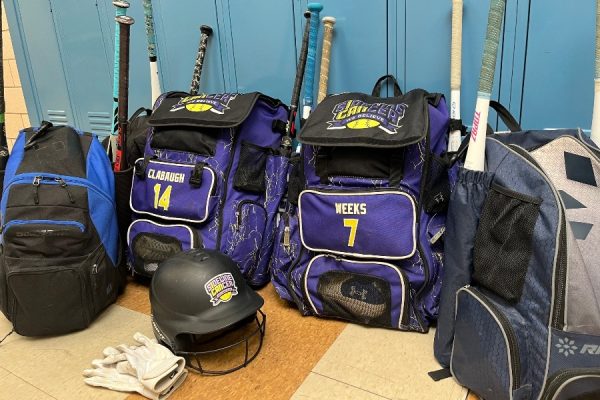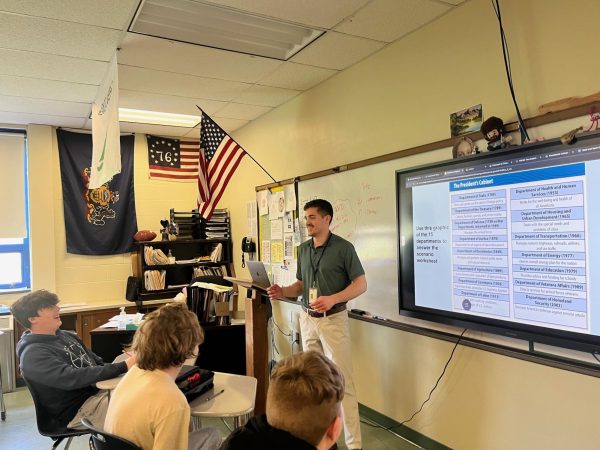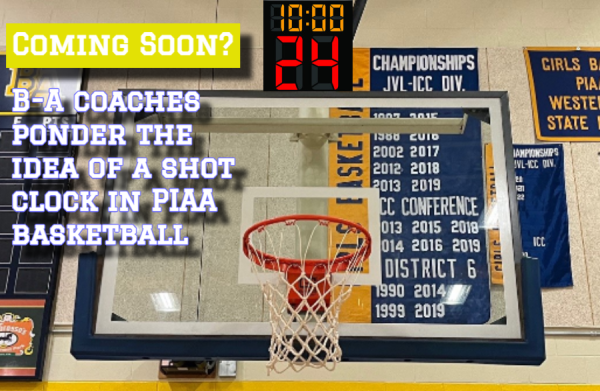BASD ponders the future of student technology
BASD is considering its next step in student technology.
December 4, 2019
When you hear the words screen time you think of the amount of time people spend on phones, tablets, and computers.
In reality those items are not the biggest problems. It’s television!
“Television, followed by video games, are tied for the leading cause of poor performance in school,” said a study done by JAMA Pediatrics and published in USA Today. That kind of screen time affects both children and teens significantly.
Researchers all across the world are trying to figure out whether technology is decreasing students’ academic achievements. They are also wondering if the technology that youngsters use will affect both their lives and academic achievements in the future.
Everyday an average teen spends about 7 hours and 22 minutes on technology. An average time for kids ages 8-12 is about 4 hours and 44 minutes, not including technology used for school and work.
As Bellwood-Antis nears the end of its iPad, lease the administration is considering chrome books and new iPads but have not yet decided on the next school-wide device.
BECOMING A 1-TO-1 SCHOOL
At Bellwood, spending time on screens is a way of life. In 2016 the district invested in a 1-to-1 technology program. Every student and teacher has their own personal iPad, and every teacher has their own streaming TV in their room.
Teachers are mixed on the effects of technology on education.
Mrs. Kyley Longo-McGarvey, one of the district’s technology coaches, said, “ In my classroom I have watched the kids go from consumers to producers.”
However, that may not be the norm across the district.
“Students are less engaged and more distracted, said middle school teacher Mr. Jerry Farkus. “They use the screen time as a toy to play rather than a tool to work.”
There are many different resources on tablets and computers that can help students excel in school; these apps include, Kahoot, Quizlet, Nearpod, and apps by Google.
However, with every student having an iPad at Bellwood that they can access at anytime, students become more distracted from teachers and lessons.
“Students zone out easily; they are more distracted, and they have no awareness to the lesson and learning in school,” said middle school history teacher Mr. Tim Andrekovich.
Mr. Partner said students are distracted and have no classroom management.
IMPACTS BEYOND SCHOOL
The education technology business is estimated to become a $60 billion industry by 2019, and yet most B-A teachers interviewed said that the worst factor of increased screen time is the lack of socialization.
A study done by Dr. Nicholas Kardaras said over two hundred peer-reviewed studies of increased screen time show that it increases ADHD, screen addiction, aggression, depression, anxiety, and even psychosis.
At the same time when you are on your phone, playing video games, and watching TV the amount of screen time adds up quickly.
“Kids should use devices in increments at a time. Non stop screen time for hours is way too much,” Mrs. Longo-McGarvey said.
Myers Elementary teacher Mrs. Allison Claybaugh said at school screen time should be used only as part of instruction.
MOVING FORWARD
Going forward Principal Mr. Richard Schreier said it’s too early to tell if B-A will keep going forward with the ipads.
“We are trying to help and benefit the students in our school,” he said. “We took away the cellphones because the addiction was out of hand. For example, if kids’ iPads were not charged teachers would allow them to do the assignment on their phones in class. This was making kids think it was ‘ok’ to not be prepared with their school items.”
Mrs. Forshey a tech teacher at BellwB-A, recently visited classes to conduct informal polls on what device is best for the district as it decides whether to stick with iPads or try something new. She also sent a survey to teachers inquiring about personal preferences for technology devices in the classroom.
Dr. Thomas McInroy, the Bellwood-Antis Superintendent, said the decision will come with the best for B-A learners in mind.
“We are doing all we can to meet the needs for our students and teachers. not many schools have K-12 devices at anytime needed,” he said.


